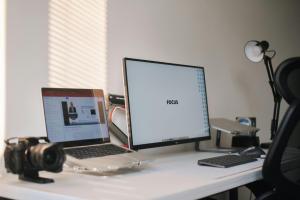No matter how you look at it, and how much experience you have in interviewing, the interview is never easy. You\’re probably nervous: there is a lot riding on it, you\’re likely not the only one for the role, and for most people it is hard to showcase themselves, and think of good answers to those dreaded questions. So, we\’re to help with 5 tips on how to increase your chances to nail your job interview. Let\’s face it: we\’ve all been there.
1. Prepare.
A good preparation helps before, during and after the interview. You can prepare by, obviously, ensuring your resumes is 100% up to date, purposeful and tailored to the role you are applying for. That\’s a given. Make sure you read the job description for the position you are applying for. Even generic roles that sound the same (HR Manager, Sales Manager), can have specific tasks, roles and responsibilities. You can read up, and see if there are specific elements to that role, or whether you spot an emphasis on certain parts of the role. For instance, if you read \”customer focused\” a few times, you can assume it\’s important, and tailor your answers towards it.
2. Dress the Part
For the interview: dress up. Wear nice clothes that make you feel secure and strong. If you\’re worried whether people see the tear, they probably won\’t, but they\’ll likely see you being distracted. If you are interviewing though video (guys, why wouldn\’t you -it\’s more than the future. It\’s here, and it\’s now.), double-check your internet connection, software updates, charge of your headphones and whether there\’s roadwork, baby\’s or dogs nearby.
3. Know Where You\’re Going
If you travel to a physical location for the interview, build in a lot of time. Assume rain and flooding, car trouble, air strikes, toppled trees, coffee spills and parking trouble. The more time you can build in to be there on time, the better it is. Don\’t go into the location too early though, especially when it\’s the office location. Don\’t be the creepy figure in the lobby, waiting for an hour. Fifteen minutes, tops. Wait at a Starbucks, in your car, whatever works for you. But, be early, and avoid the sweat of running into the building, worrying about your first impression being late, not being able to find the name of your counterpart (\”Is it… wait, I got it, Johnson? Jones?\” \”It\’s Anderson. He\’s waiting for you.\”). Build in time to practice, and know where to find it when you inevitably will need it, in front of the receptionist.
4. Sit Up Straight, and Smile
A key to making a good impression is paying attention to the details. You ensured you dressed appropriately, you\’re on time and you know who you\’re meeting. Now, when you sit, sit up straight, look people in the eye, and don\’t fidget. Nerves are perfectly normal, but don\’t let them take over in the discussion where you should shine, by distracting from your message with waving your hands, touching your face or other nervous motions. Sit up straight, fold your hand in your lap, or have your fingers crossed with your hands on the table, so you can make natural, authentic and small, controlled movement. Obviously, you look your discussion partners in the eyes as much as possible. Make sure your story is positive and future-oriented. Avoid bad-mouthing your previous employers and bosses, no matter how justified it may be, and even if your interviewer plays the most beautiful assist. Stay above it, and emphasize all the good things, and lessons you learned from past experiences.
5. Don\’t Lie
It feels weird to make it a separate point, but I think it\’s important enough to emphasize. When you are showcasing yourself, it is not strange to think that you want to make sure you show yourself as the best candidate for the position. So, the temptation to bend or stretch the truth a little bit, seems justified and understandable.
The issue is, that it will come out. If it\’s a small white lie, you may get away with it. But if it is a little bit bigger (say, you confirm you have experience with the software that is super-, super important to them), it will come to light. And if it is indeed that important for the hiring company, it\’s going to be a big deal.
I have learned that in my years of experience of being on both sides of the table, that it pays to tell the truth. If it is only a tad bigger than \”I can get away with this\”, you should be open and honest, and use the opportunity to turn it into a pro-active, solution-focused answer. Think: \”No, I am not as familiar with the last software suite as I like to be, but I have access to courses, and can learn, which I will do immediately. Or I know someone who uses the software, and they offered to train me.\” It may not get you anywhere, but the hiring managers will appreciate the honesty.
In Conclusion
These are strange times. Unprecedented. With an economy under pressure and the way of living, interacting and working changed dramatically. What hasn\’t changed, is the need to deliver a good job interview. And unprecedented times do not call for drastic measures. They call for calm and collected, well-prepared and thoughtful actions. It may take time, but it will pay off in the end.









